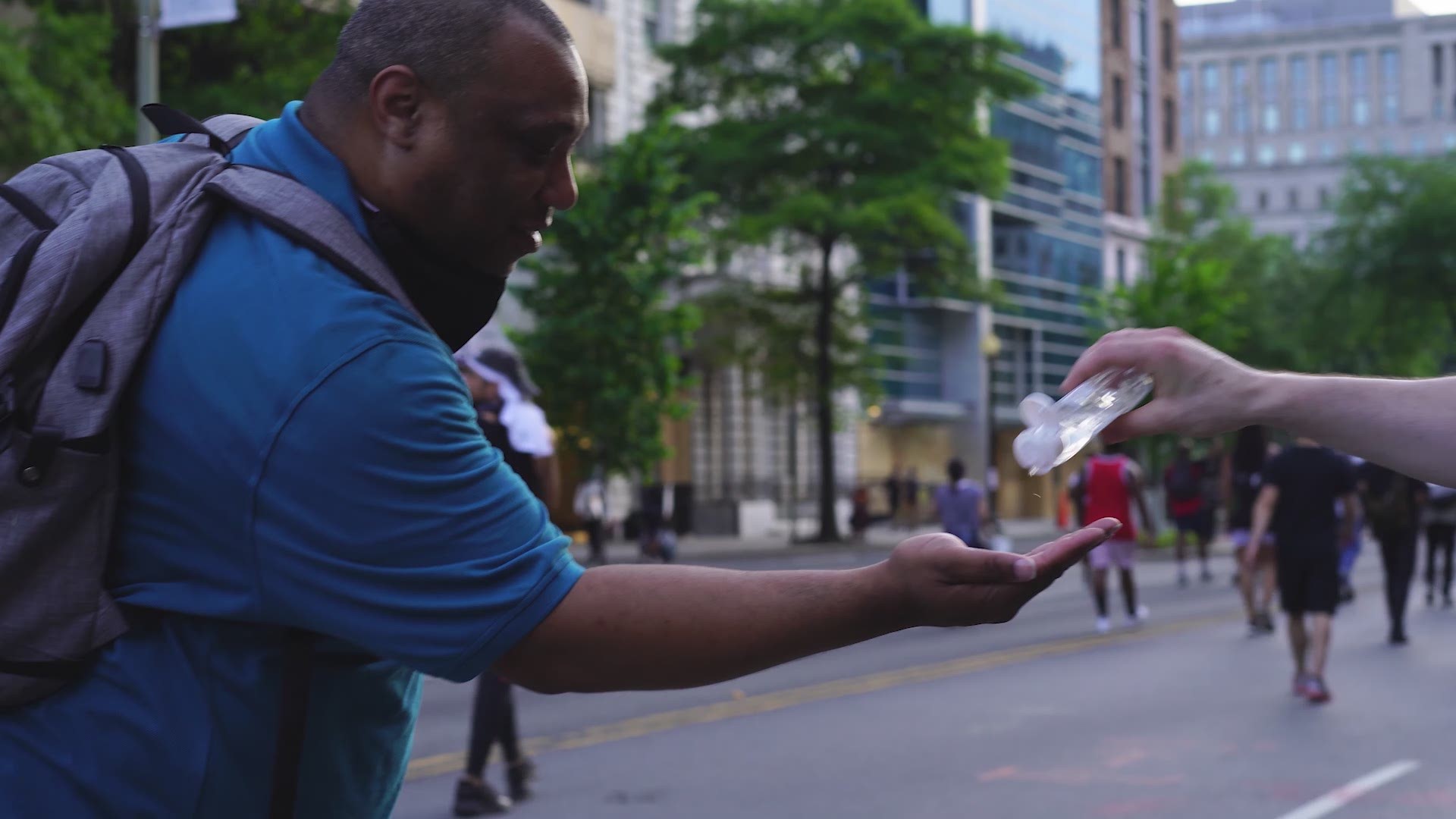WASHINGTON — For two weeks, Washingtonians took to the streets to make their voices heard, protesting police brutality in the wake of George Floyd's death while in Minneapolis police custody. They've wept together for the lives lost, taken refuge in a stranger's home to avoid arrest and shouted messages like "no justice, no peace." They've brought their children to see what they are fighting for and they've engaged in difficult conversations over fences about what real change would mean. And some even turned to rioting and looting.
One week after the city saw one of its biggest crowds yet -- as thousands marched and protested last Saturday -- activity seems to have slowed down. The fence around Lafayette Square that became a hotbed of protest activity has been taken down, and the bright yellow lettering of the Black Lives Matter mural painted down 16th Street leading to the White House is already slightly faded.
It's a fair question to ask, if protests are subsiding, is the momentum as well? Was anyone listening the last two weeks, and will anything change?
"Initially, I wasn't as optimistic, because we've seen this too many times before," WUSA9's Lorenzo Hall said last Saturday. "There's the oppressive moment, outrage, and then out goes any opportunity for change because of some other distraction or opposing force."
But in the DMV, signs are pointing to yes, these past two weeks could bring change. Lawmakers in D.C, Maryland and Virginia have all proposed significant changes to ban violent police tactics and offer more accountability.
The D.C. Council unanimously passed a package of police reforms on Tuesday, despite objections of the police union. The bill bans the use of tear gas on protesters, neck restraints like the one used on George Floyd, the hiring of officers with a history of misconduct, and requires the mayor to release body-camera footage of officers who use force on civilians within 72 hours.
"Our ears are wide open in regards to accountability," D.C. Police Chief Peter Newsham said.
In Virginia, Attorney General Mark Herring is asking Congress to give him the power to investigate police departments for a pattern and practice of discriminatory policing.
In Maryland, the chair of the Senate Judiciary Committee is proposing changes including banning chokeholds, releasing disciplinary records, and prohibiting the purchase of military equipment.

